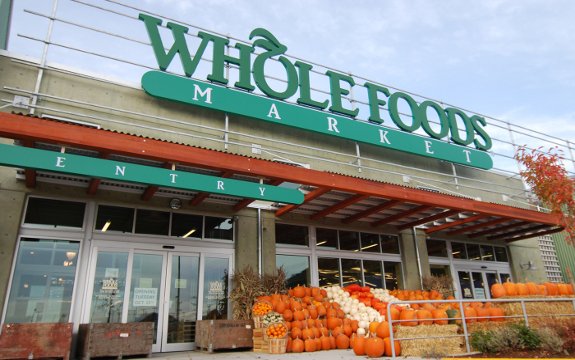Whole Foods Issues Statement on GMO-Transparency Progress

 One year ago, the largest chain of health food stores in the country vowed transparency in promising that all of their products would one day carry labels to inform consumers if they contained genetically modified ingredients. Now, Whole Foods has issued an update to that promise, indicating that change is coming, albeit a slow process.
One year ago, the largest chain of health food stores in the country vowed transparency in promising that all of their products would one day carry labels to inform consumers if they contained genetically modified ingredients. Now, Whole Foods has issued an update to that promise, indicating that change is coming, albeit a slow process.
Offered on their official website, the document says the company is working towards the completion of their labeling project, though they maintain their far-off 2018 goal date.
In determining how best to ensure their consumers get the transparency they are after, Whole Foods determined that in order to be considered GMO-free, a product must either be verified by the Non-GMO Project, or be certified as organic, since the organic standard prohibits the use of GMO ingredients already.
Though the statement says there is still work to be done, the health food store believes their vow has led some food producers to seek out Non-GMO Project verification in anticipation of the change and in an effort to join the cause.
Since Whole Foods announced their goal last year, the Non-GMO Project has added more than 10,000 products and verified another 4,622, including 1,500 different brands.
Read: 54% of Food at Whole Foods Banned at Walmart
The company says they currently offer more than 6,000 products from more than 500 brands that are sourced non-GMO. Of their store brand, Everyday Value, more than 2/3 are organic, Non-GMO Verified, or both.
Alcoholic beverages are proving to be a difficult obstacle in the pursuit of their labeling goal. These products often use genetically modified enzymes, but federal laws regarding alcohol labels may not allow for GMO labels to be placed directly on the packages.
Also, the company is working to ensure their animal products are labeled—“working within the farming and aquaculture industries to explore new sources of non-GMO and organic feed.” As such, they say, some farmers they work with have made significant changes to comply and continue working with Whole Foods.
While there has been recent controversy over just how “organic” certified organic products are, the Whole Foods effort, albeit slow-coming, is a step in the right direction for many consumers who want to know exactly what’s in their foods.

Wholefoods has a man who is involved with Monsanto working in a leadership position,
I am concerned that Wholefoods is just using dialogue to stall their movement away from selling GMOs. I will not shop their as I no longer trust them. It will take some real work by them to convince me they are sincere.
I agree Casey. Until I absolutely am sure that they are not selling GMO, then why shop there?
Why shop there? For food, for one, and maybe with customer growth this should help insure Whole Foods that the shopping public is serious about NOT buying GMO (so called) foods.
If we do not support them or anyone else that is trying, then why should they stick their neck out?
We still have the ability to read and determine what is, and what is not good for us.
Global March Against Monsanto – Saturday, May 24, 2014. Google March Against Monsanto – Events and find a march near you. Join millions of people marching worldwide to take back our food!!
If Whole Foods is serious and honest with labelling and trying to sell Organic, then they should get rid of the person involved with Monsanto working in a leadership position.